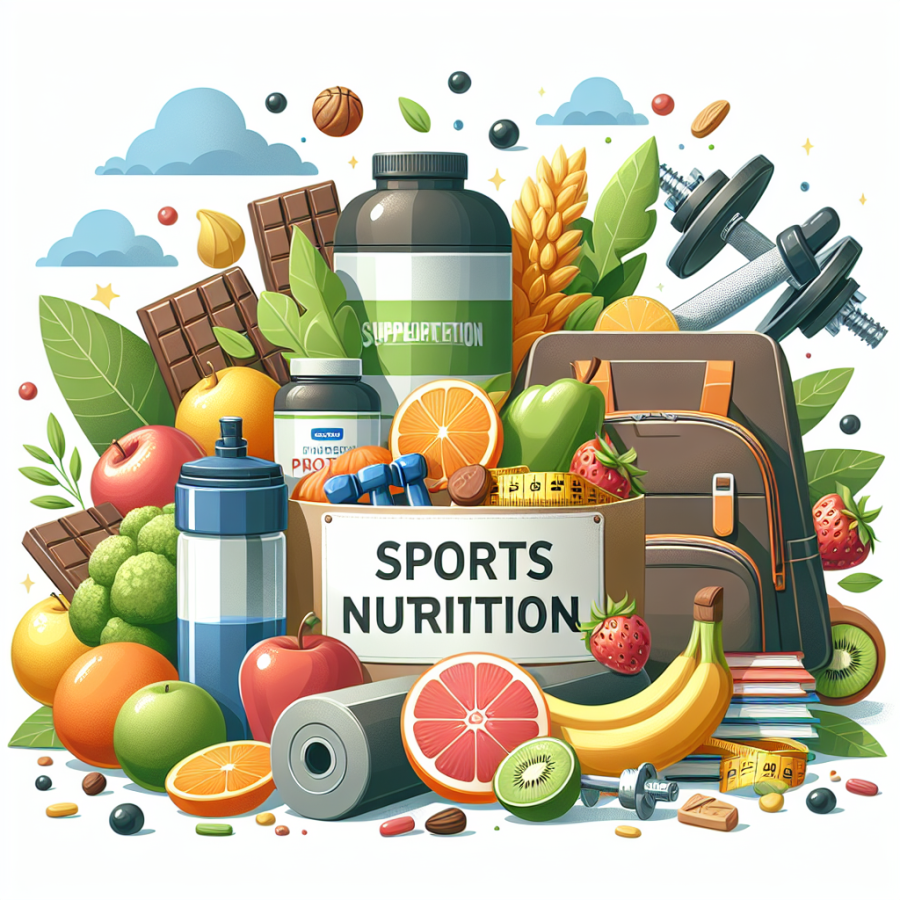Understanding the Role of Proper Nutrition in Sports Recovery and Injury Prevention
When exploring the realm of sports nutrition, the two aspects often underplayed but carry a large significance are sports recovery and injury prevention. Both of these elements go hand in hand and are heavily dependent on the quality of nutrition consumed by athletes. The relationship between nutrition and sports recovery and injury prevention is multifaceted and necessitates a thorough understanding to maximize an athlete's potential.
Nutrition plays a key role in helping athletes recover after high-intensity training or a competitive event. Adequate post-exercise nutrition is crucial in replenishing glycogen stores, repairing damaged muscle tissues, and reducing inflammation. This enables the athletes to recover faster and be ready for the next training session or competition. Consuming a balanced meal rich in carbohydrates, proteins, and fats is critical. These macronutrients help to replace muscle glycogen, repair and rebuild muscle tissue, and promote muscle growth.
For instance, carbohydrates are the main source of energy for athletes. A diet low in carbohydrates may lead to early fatigue and impaired performance. However, immediately after a tough workout or competition, the body is better capable of absorbing carbohydrates and converting them into glycogen. Therefore, consuming a high-carbohydrate meal or snack post-exercise is crucial for optimum recovery.
Protein consumption is equally, if not more, important in recovery. Vigorous training and competitions cause minor injuries to the muscle fibers, which need to be repaired for the muscles to grow stronger. Consuming adequate protein helps in the repair process. Protein also helps in the production of new blood cells that carry oxygen and nutrients to the muscles to accelerate recovery.
Good fats, such as omega-3, also aid in recovery by reducing inflammation caused by intense workouts.
Nutrition's role extends beyond recovery, influencing injury prevention too. Inadequate protein intake may lead to weak muscles prone to injury. Similarly, a low carbohydrate diet may lead to reduced muscle glycogen stores, causing fatigue, impaired performance, and increased risk of injury. Furthermore, micronutrient deficiencies, particularly of calcium and vitamin D, can lead to weakened bones, thereby increasing the risk of fractures and other injuries.
Athletes also need antioxidants, such as vitamins C and E, selenium, and beta-carotene, to reduce oxidative stress caused by vigorous exercise. Oxidative stress, if not kept in check, may lead to inflammation and tissue damage.
Hydration, apart from nutrition, is also key in both recovery and injury prevention.
Read also:
Exploring the Thrill and Challenge of Competitive Pursuits
Essential Nutrients for Enhancing Athletic Performance
Athletes are consistently required to perform at the optimum level in their chosen sports. Nutrition plays an integral role in achieving this. There are several essential nutrients that are crucial for enhancing athletic performance, including carbohydrates, proteins, fats, vitamins, and minerals.
Carbohydrates are the primary fuel source for an athlete’s muscles. They provide the energy necessary to perform high-intensity, short-duration activities which are prevalent in most sports. There are two types of carbs - complex and simple. Consuming complex carbohydrates, which can be found in whole grains, lentils, beans, and certain fruits and vegetables, provide longer-lasting energy.
On the other hand, proteins aid in muscle recovery and repair, facilitating the growth of new muscle tissue. They are critical to maintain an athlete's muscle strength and to recover from strenuous training sessions and competitions. Athletes should aim to consume lean proteins, such as chicken, turkey, lean cuts of beef, and low-fat dairy products.
Next, fats are also a vital energy source, particularly for endurance athletes or those participating in long-duration activities. Generally, athletes should focus on consuming healthy fats, including monounsaturated and polyunsaturated fats, which can be found in avocados, nuts, seeds, and oily fish.
As well as macronutrients, vitamins and minerals are also essential to enhance athletic performance. They provide a multitude of benefits, including energy production, oxygen delivery, bone health, and immune function. Athletes should strive to get these nutrients from a varied diet consisting of fruits, vegetables, lean proteins, and whole grains.
Trace elements, such as iron, calcium, and sodium, are equally important. Iron carries oxygen to the muscles, preventing fatigue, while calcium is crucial for bone health, particularly in female athletes who are susceptible to osteoporosis. Sodium is a critical electrolyte that helps to maintain fluid balance, nerve function, and muscle contraction.
Finally, proper hydration is the key to optimal athletic performance. Maintaining appropriate fluid balance helps regulate body temperature, transport nutrients, and maintain the health of cells. Athletes should monitor their hydration levels and drink sufficient quantities of water before, during, and after training and events.
It is important to remember that the nutritional needs of athletes can vary significantly based on multiple factors, including age, gender, body composition, the type of sport, and the level of training.




